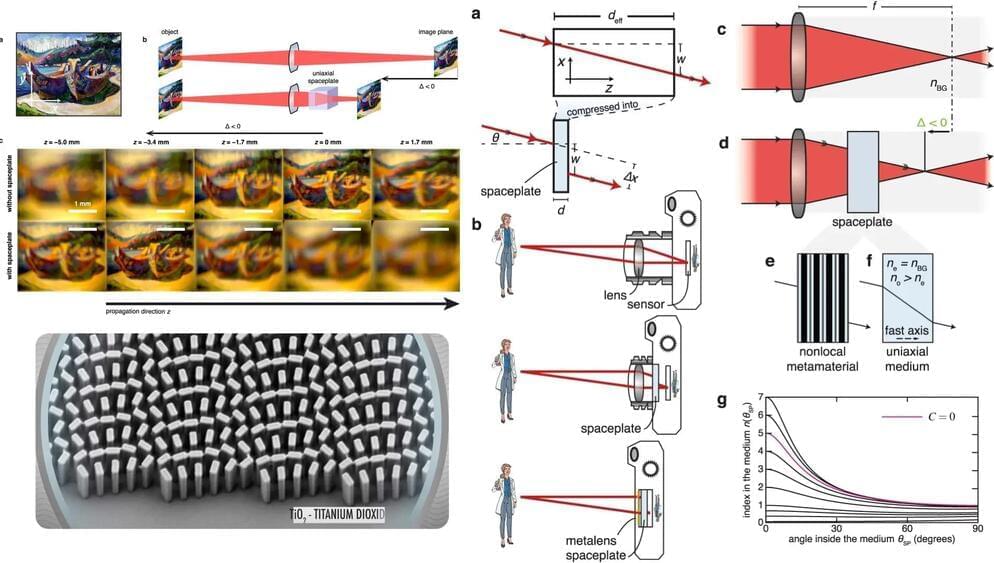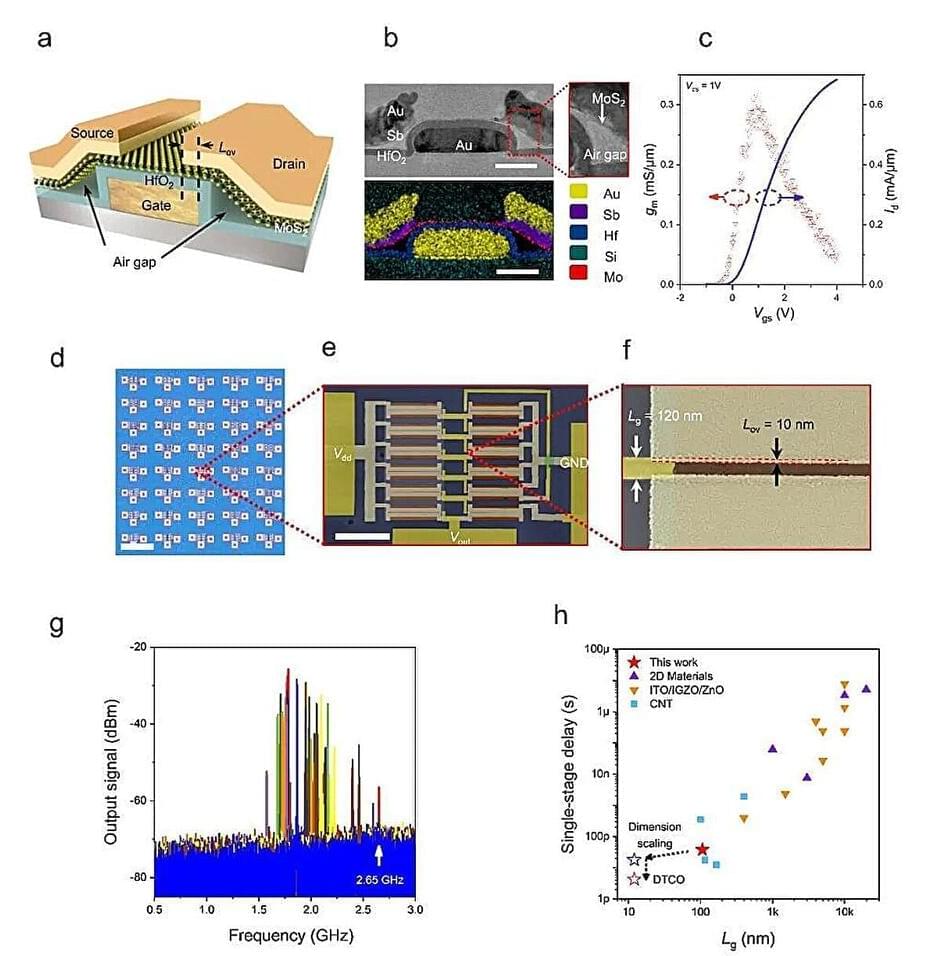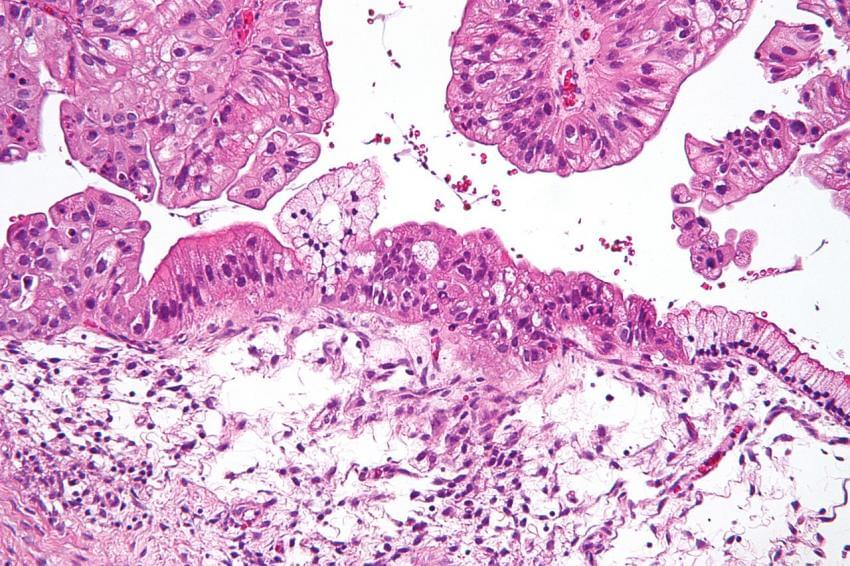The 93%-full waxing gibbous moon and a bright Jupiter will make a close approach in the night sky tonight.



A recent study has raised questions about the impact of chronic caffeine consumption on our brain’s ability to adapt and learn. In a new study published in Frontiers in Psychiatry, scientists found that long-term caffeine users may exhibit decreased brain plasticity, a critical factor in the processes of learning and memory, when subjected to a brain stimulation protocol.
Caffeine is a common stimulant found in coffee, tea, soda, and other beverages. It’s known to help with alertness and concentration, but its effects on the brain’s ability to change and adapt over time, a process called plasticity, have been less clear.
Previous studies have shown mixed results when it comes to caffeine’s influence on brain plasticity. Some studies hinted that caffeine might hinder the brain’s ability to learn and adapt, while others suggested potential benefits. The researchers conducted this study to investigate the effects of caffeine on human brain plasticity, specifically focusing on its impact on long-term potentiation (LTP) and its potential interaction with a neuromodulation technique called repetitive transcranial magnetic stimulation (rTMS).

Veterinarians are encouraging dog owners to be cautious about a new mystery respiratory illness affecting dogs in the U.S.
Some of the first reports of the “atypical canine infectious respiratory illness,” which has symptoms similar to kennel cough and respiratory infections, appeared in Oregon in August.
“In August 2023, the Oregon Department of Agriculture (ODA) received reports of an atypical canine infectious respiratory illness being seen in dogs in the Portland Metro and Willamette Valley areas over the summer. To date, ODA has received over 200 reports of atypical canine infectious respiratory disease from Oregon veterinarians,” the Oregon Veterinary Medical Association shared in a release about the illness.

Are you ready for a cell phone with a medium-format-sized sensor?
It’s science time. New research tells us how, with the help of metalenses and spaceplates, we don’t need conventional lenses anymore. Furthermore, that will allow manufacturers to develop tiny cameras with bigger sensors. Read the highlights of the research below.
New research has found a solution for reducing the size of cameras, by combining both metalenses and spaceplates. That combination allows a significant reduction of the glass and the length from the camera sensor. The result can be a lens-free camera and a bigger sensor. Furthermore, it’s a whole new approach for how light can be focused, and utilized, that can result in manufacturing facilitation of both cameras and lenses.
Adding a spaceplate to an imaging system such as a standard camera will shorten the camera. An ultra-thin monolithic imaging system can be formed by integrating a metalens and a spaceplate directly on a sensor.
This video explores the future of the world from 2030 to 10,000 A.D. and beyond…Watch this next video about the Technological Singularity: https://youtu.be/yHEnKwSUzAE.
🎁 5 Free ChatGPT Prompts To Become a Superhuman: https://bit.ly/3Oka9FM
🤖 AI for Business Leaders (Udacity Program): https://bit.ly/3Qjxkmu.
☕ My Patreon: https://www.patreon.com/futurebusinesstech.
➡️ Official Discord Server: https://discord.gg/R8cYEWpCzK
0:00 2030
12:40 2050
39:11 2060
49:57 2070
01:04:58 2080
01:16:39 2090
01:28:38 2100
01:49:03 2200
02:05:48 2300
02:20:31 3000
02:28:18 10,000 A.D.
02:35:29 1 Million Years.
02:43:16 1 Billion Years.
SOURCES:
• https://www.futuretimeline.net.
• The Singularity Is Near: When Humans Transcend Biology (Ray Kurzweil): https://amzn.to/3ftOhXI
• The Future of Humanity (Michio Kaku): https://amzn.to/3Gz8ffA
• AI 2041: 10 Visions of Our Future (Kai-Fu Lee & Chen Qiufan): https://amzn.to/3bxWat6
• Tim Ferriss Podcast [Chris Dixon and Naval Ravikant — The Wonders of Web3, How to Pick the Right Hill to Climb, Finding the Right Amount of Crypto Regulation, Friends with Benefits, and the Untapped Potential of NFTs (542)]: https://tim.blog/2021/10/28/chris-dixon-naval-ravikant/
• https://2050.earth/
• https://research.aimultiple.com/artificial-general-intellige…ty-timing/
• https://mars.nasa.gov/mars2020/spacecraft/rover/communications/
• https://www.forbes.com/sites/tomtaulli/2020/08/14/quantum-co…3acd9f3b4c.
• https://cointelegraph.com/news/tales-from-2050-a-look-into-a-world-built-on-nfts.
• https://medium.com/theblockchainu/a-day-in-life-of-a-cryptoc…a07649f14d.
• https://botland.store/blog/story-of-the-internet-from-web-1&…b-4-0/
• https://www.analyticsinsight.net/light-based-computer-chips-…h-photons/
• https://www.wired.com/story/chip-ai-works-using-light-not-electrons/
• https://www.science.org/content/article/light-based-memory-c…store-data.
💡 Future Business Tech explores the future of technology and the world.
Examples of topics I cover include:
• Artificial Intelligence & Robotics.
• Virtual and Augmented Reality.
• Brain-Computer Interfaces.
• Transhumanism.
• Genetic Engineering.
SUBSCRIBE: https://bit.ly/3geLDGO


On Tuesday, Stability AI released Stable Video Diffusion. The first implementation for private users is now available.
The makers of the Stable Diffusion tool “ComfyUI” have added support for Stable AI’s Stable Video Diffusion models in a new update. ComfyUI is a graphical user interface for Stable Diffusion, using a graph/node interface that allows users to build complex workflows. It is an alternative to other interfaces such as AUTOMATIC1111.
According to the developers, the update can be used to create videos at 1,024 × 576 resolution with a length of 25 frames on the 7-year-old Nvidia GTX 1,080 with 8 gigabytes of VRAM. AMD users can also use the generative video AI with ComfyUI on an AMD 6,800 XT running ROCm on Linux. It takes about 3 minutes to create a video.

Natural products collection reveals novel enzymes with surprising properties. Scientists have discovered two enzymes that enable bacteria to target and break up DNA. This chemical defense likely evolved to help the organism fight off germs. The chemical riches were found within the institute’s one-of-a-kind Natural Products Discovery Center collection.
Slumbering among thousands of bacterial strains in a collection of natural specimens at The Herbert Wertheim UF Scripps Institute for Biomedical Innovation & Technology, several fragile vials held something unexpected, and possibly very useful.
Writing in the journal Nature Chemical Biology, a team led by chemist Ben Shen, Ph.D., described discovery of two new enzymes, ones with uniquely useful properties that could help in the fight against human diseases including cancer. The discovery, published last week, offers potentially easier ways to study and manufacture complex natural chemicals, including those that could become medicines.

Transistors are crucial electronic components that regulate, amplify and control the flow of current inside most existing devices. In recent years, electronics engineers have been trying to identify materials and design strategies that could help to further improve the performance of transistors, while also reducing their size.
Two-dimensional (2D) transition metal dichalcogenides have some advantageous properties that could help to enhance the capabilities of transistors. While past studies have demonstrated the potential of these materials in individual transistors, their use for developing entire integrated circuits (ICs) that operate at high frequencies has proved challenging.
Researchers at Nanjing University in China recently created new ICs that can operate at GHz frequencies, based on the 2D semiconducting material monolayer molybdenum disulfide (MoS2). Their devices, presented in a Nature Electronics paper, rely on MoS2-based field-effect transistors (FETs).

To identify potential therapeutic targets and preclinical drug candidates for the treatment of ovarian cancer, researchers led by Tan Li from the Shanghai Institute of Organic Chemistry of the Chinese Academy of Sciences have developed novel small molecule inhibitors of CPSF3, a key module of the cleavage and polyadenylation specificity factor (CPSF) complex that catalyzes pre-mRNA splicing and regulates transcription termination.
This work was published in Science Advances on Nov. 22.
Ovarian cancer is the deadliest gynecological cancer and is often diagnosed at a late stage. In treating ovarian cancer, surgery and systemic chemotherapy can modestly improve the survival rate, while targeted therapies with PARP inhibitors are effective in a limited number of ovarian cancer patients.